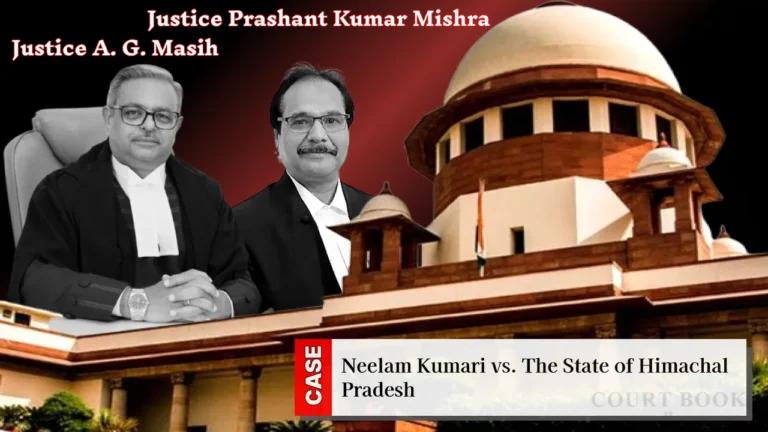The Supreme Court has set aside the conviction of Neelam Kumari, who was earlier sentenced to life imprisonment for allegedly strangling her infant son. Delivering the judgment, the bench of Justice Prashant Kumar Mishra and Justice Augustine George Masih ruled that the prosecution had failed to prove her guilt beyond reasonable doubt.
Neelam Kumari was convicted by a Himachal Pradesh trial court in 2007 under Section 302 of the Indian Penal Code, and the High Court upheld the verdict in 2009. The case was built largely on circumstantial evidence and alleged extra-judicial confessions, but the Supreme Court observed that such confessions are considered "weak pieces of evidence" and require strong corroboration.
Read also:- Court Upholds Decision Lack of Medical Evidence Fails Marriage Annulment Case
The court analysed the medical findings, which revealed marks of throttling on the child’s neck, but also highlighted uncertainties in the timeline of death. The judges pointed out that nearly two hours had passed between the suspected strangulation and death, and another eight hours before medical examination.
"This extended timeline introduces considerable uncertainty,"
The bench remarked, noting that others could also have had access to the child.
The recovery of a green dupatta, said to be the murder weapon, was also questioned. The dupatta was never shown to the doctor who conducted the postmortem, creating what the bench called "a fundamental disconnect in the chain of evidence." Moreover, forensic traces on the dupatta could not be conclusively linked to the deceased child.
Equally significant was the court’s view on Neelam’s conduct after the incident. Instead of concealing the child’s condition, she immediately sought medical help. The judges observed that such behaviour "is more consistent with innocence than guilt."
Another critical factor was the absence of a convincing motive. The prosecution suggested that tensions over family disputes triggered the crime, but the bench held that this explanation "defies logic" and goes against the natural instincts of a mother.
Ultimately, the Supreme Court ruled that the alleged confessions and circumstantial evidence failed to form a complete chain pointing only to Neelam’s guilt. Allowing her appeal, the bench acquitted her of the charge of murder and discharged her from bail bonds.
Case Title:- Neelam Kumari vs. The State of Himachal Pradesh
Case No.:- Criminal Appeal No. 582 of 2013















